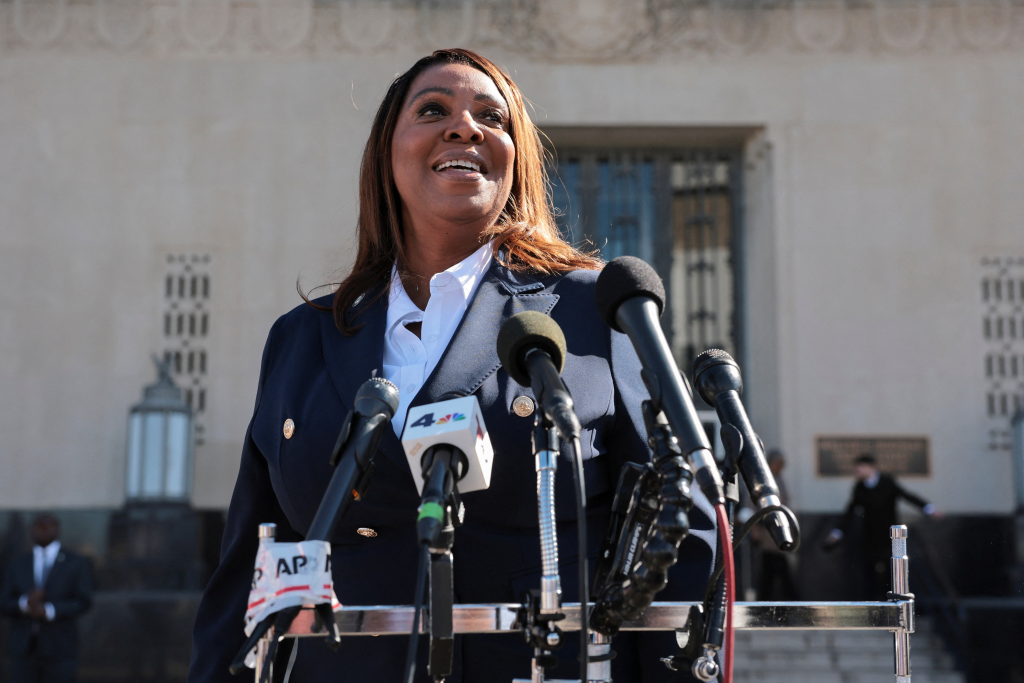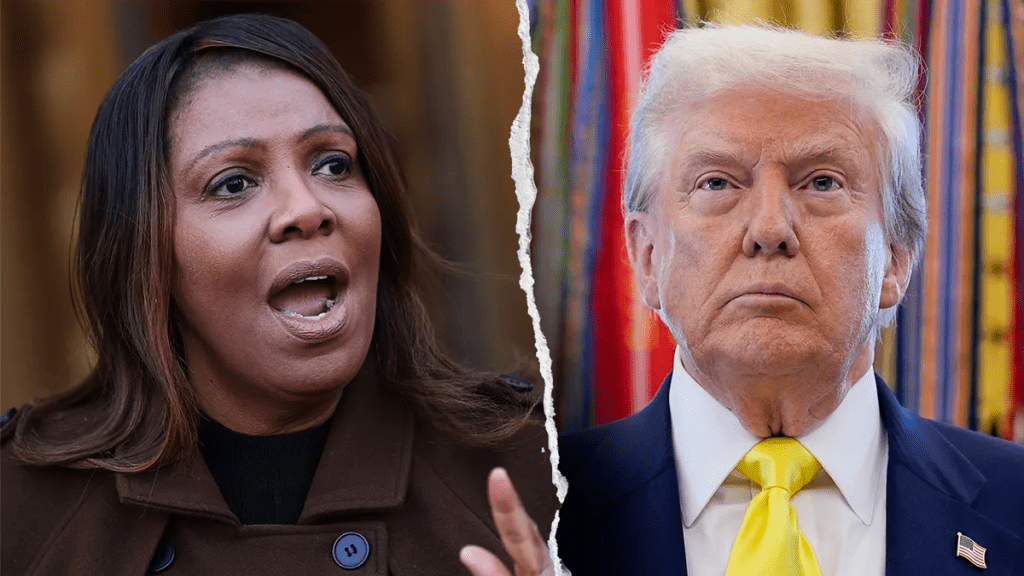Judge Denies Letitia James’ Motion Demanding DOJ Media Logs — A Major Victory for the Justice Department in Her Mortgage Fraud Battle
A federal judge has handed the Department of Justice a key victory in the ongoing mortgage fraud case against New York Attorney General Letitia James, denying her legal team’s request to force prosecutors to keep detailed records of all their communications with the media. The ruling, issued late Friday, marks a significant procedural win for federal prosecutors and a sharp setback for the embattled attorney general, who has faced mounting legal pressure amid accusations of financial misconduct.

At the center of the dispute was a motion from James’ defense team that sought to require the DOJ to log every conversation, message, and email between prosecutors and reporters. Her lawyers argued that such a measure was necessary to prevent potential leaks and protect the integrity of the proceedings. They cited recent reports of alleged off-record conversations between prosecutors and journalists, including encrypted messages that appeared to contain details about evidence and case strategy.
But Judge Jamar K. Walker, presiding over the case in a federal district court, firmly rejected the request. In his written decision, the judge ruled that James’ attorneys “failed to show sufficient cause” to impose such a sweeping and unprecedented mandate. He clarified that existing discovery and disclosure rules already provide adequate safeguards and that additional tracking requirements would interfere with the normal operations of federal law enforcement.

While the judge acknowledged that contact between prosecutors and journalists can sometimes raise legitimate concerns, he stressed that the defense had offered no proof of improper conduct. “The Court finds no compelling reason to impose a specialized reporting obligation on the United States Department of Justice,” the ruling stated. The decision effectively frees prosecutors from what they called a “burdensome and unnecessary” oversight demand.
The ruling comes as Letitia James continues to fight multiple fronts of legal scrutiny. The mortgage fraud case stems from allegations that she provided false information on a 2020 loan application to purchase a Virginia property, reportedly claiming it was for personal residential use while allegedly renting it out for profit. Federal investigators have accused her of bank fraud and misrepresentation, charges she has strongly denied. James has maintained that the case is politically motivated, describing it as “a targeted attack designed to discredit my work.”

For the Justice Department, Friday’s decision is being viewed as a reinforcement of its authority and autonomy. By rejecting the defense’s attempt to monitor its communications, the court affirmed that standard ethical and procedural safeguards are sufficient — a point DOJ officials argued was critical to maintaining prosecutorial independence. Legal analysts say the ruling prevents a potential precedent that could have subjected prosecutors nationwide to heightened scrutiny whenever high-profile political figures are involved.
Still, the optics are complex. Letitia James, once celebrated by Democrats for her aggressive legal battles against Donald Trump, is now navigating a case that has turned many of her previous political allies silent. The mortgage fraud allegations, combined with questions about her handling of past investigations, have drawn national attention and quietly fractured her support base in New York political circles.
The judge’s rejection of her motion also narrows her legal strategy. Without the ability to compel DOJ transparency logs, James’ defense team loses a potential avenue to challenge the credibility of the prosecution or argue media interference. While her spokesperson declined to comment in detail, a brief statement from her office said, “We respect the court’s ruling and remain focused on defending against these unfounded claims.”

Observers note that the case has broader implications beyond its legal outcome. It highlights how the same mechanisms of accountability that public officials often wield can later be turned against them. For years, James built her reputation as a watchdog against corporate corruption and political wrongdoing. Now, she finds herself in the unfamiliar position of being the one under federal investigation.
As the case advances toward trial, the DOJ is expected to move forward confidently with its evidence phase, while James’ team will continue to push for procedural challenges and potential dismissals. For now, though, the message from the court is clear — the Justice Department will not be subject to extraordinary oversight in its pursuit of the case, and Letitia James’ defense will have to fight its battle within the normal boundaries of federal law.

